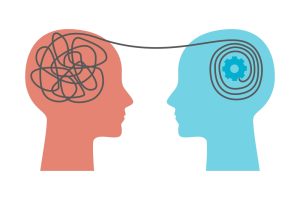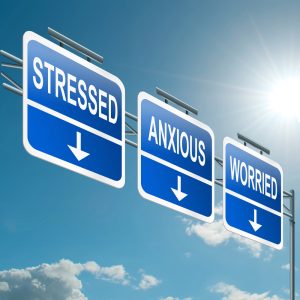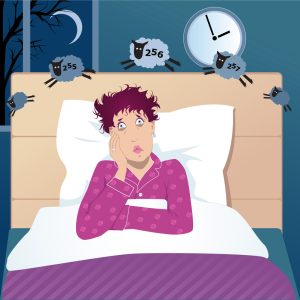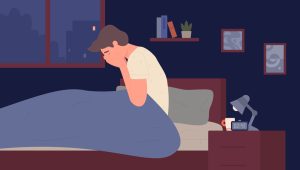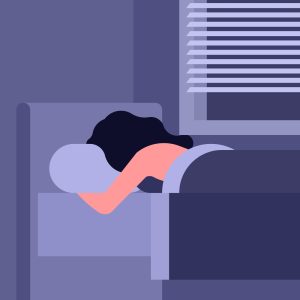I. Introduction
The modern landscape of academia presents significant challenges that contribute to increased levels of stress among faculty. As the demands of teaching, research, and administrative responsibilities converge, the mental health of educators becomes precarious. Notably, recent studies have documented a surge in anxiety, burnout, and depression among academics, exacerbated by changes in higher education structures and the impact of the COVID-19 pandemic (Halat DH et al., 2023). These pressures underscore the need for effective strategies to address stress and promote well-being. Furthermore, understanding how stress manifests within academic settings is crucial for developing interventions that can foster resilience and better work-life balance (Carrard N et al., 2019). By examining the complexities of stress in academia, this paper aims to provide a framework for releasing, reframing, and reconciling with stress, ultimately supporting the mental health and professional longevity of educators in an evolving educational environment.

A. Definition of stress and its prevalence in modern life
To effectively address the evolving concept of stress, it is essential to define what stress entails in contemporary society. Stress can be broadly understood as a psychological and physiological response to perceived challenges or threats, often exacerbated by the fast-paced nature of modern life. Factors such as technological advancements, workplace demands, and interpersonal expectations can intensify feelings of anxiety and overwhelm. In exploring the complexities of caregiving, it becomes evident that stress is not limited to the individual; it often permeates the lives of caregivers who juggle multiple responsibilities, underscoring the pervasive nature of stress across diverse demographics (Henwood et al., 2017). Additionally, management literature reveals interesting trends related to online panel data and its implications for understanding stress in organizational contexts, suggesting that the environment in which individuals operate significantly influences their stress levels (Cho et al., 2018). Thus, comprehending stress necessitates a multifaceted approach that encompasses both personal and societal dimensions.
B. Importance of addressing stress for mental and physical health
Addressing stress is paramount for both mental and physical health, as chronic stress can lead to a myriad of health complications, including anxiety, depression, and cardiovascular diseases. The cumulative effects of prolonged stress disrupt the bodys homeostasis, weakening the immune system and increasing vulnerability to various ailments. A study exploring acculturative stress among higher-level educational migrants in Italy highlighted that this demographic faces diverse stressors, such as bureaucratic obstacles and financial pressures, which can detrimentally impact subjective well-being (SWB) and lead to mental health concerns (OTHAIX A et al., 2024). Similarly, caregivers often experience significant stress that can manifest in poor physical health outcomes, emphasizing the necessity of effective coping mechanisms and support networks (Henwood et al., 2017). Thus, integrating strategies for stress management not only enhances individual resilience but is essential for promoting overall health and well-being, making it a critical component of a balanced lifestyle.
The concepts of releasing, reframing, and reconciling with stress intertwine to form a comprehensive framework for managing lifes pressures. Releasing involves letting go of unproductive thoughts and feelings that contribute to stress, thereby creating a mental space for positivity and well-being. This process can be further enhanced through reframing, which shifts one’s perspective on stressors, allowing individuals to view challenges as opportunities for growth rather than insurmountable obstacles. Reconciliation with stress entails accepting its presence and recognizing its role in personal development, fostering resilience in the face of adversity. Understanding these relationships is critical, as research indicates that effective management strategies can significantly enhance an individuals coping abilities and overall mental health. Emphasizing the unique experiences associated with stress, such as those outlined in a recent scoping review highlighting the diverse characteristics of caregivers, can deepen our understanding of these resilience strategies (Henwood et al., 2017), (Bartkowiak-Theron I et al.).
II. Releasing Stress
To effectively release stress, individuals must engage in strategies that promote relaxation and emotional well-being. Research indicates that stress has pervasive effects on both mental and physical health, necessitating targeted interventions that enable individuals to reclaim their equilibrium. Practices such as mindfulness, yoga, and exercise serve as powerful tools to mitigate stress levels. These methods foster not only a sense of calm but also enhance resilience against future stressors. Additionally, creating a supportive environment and engaging in open communication can facilitate better management of caregiving responsibilities, thereby alleviating stress associated with caregiving roles (Henwood et al., 2017). The importance of recognizing the unique nature of individual stressors, as highlighted in various studies, underscores the need for tailored approaches to stress management, including fostering capacities for innovation in coping mechanisms (Bezkorowajnyj et al., 2009). Ultimately, releasing stress is vital for maintaining overall health and fostering a more balanced life.
In the context of addressing stress, techniques for physical release such as exercise and relaxation methods play a critical role in fostering well-being and emotional regulation. Engaging in regular physical activity not only promotes cardiovascular health but also serves as a powerful outlet for managing stress and anxiety. A study examining the effects of somatic practices on leadership indicates that integrating daily physical routines can help individuals enhance their focus, establish genuine connections, and reduce tension and stress (Rakoff et al., 2010). Furthermore, relaxation techniques such as deep breathing and mindfulness meditation have been shown to facilitate emotional release, combatting the negative effects of unresolved feelings that can arise from chronic stressors. This aligns with the understanding that unforgiveness and emotional burden, as explored in the context of the African American experience, highlight the necessity of using such methods to cultivate inner peace and enhance interpersonal relationships (Golden et al., 2022). Overall, these techniques provide essential tools for individuals seeking to reconcile with their stress effectively.
B. The role of mindfulness and meditation in stress relief
Mindfulness and meditation play a crucial role in alleviating stress by fostering a deeper awareness of one’s thoughts and emotions. This heightened state of awareness allows individuals to observe stress triggers without immediate reaction, thereby promoting emotional regulation and resilience. Research indicates that culturally accommodating mindfulness practices can effectively aid those dealing with shame, anxiety, and depression, particularly within specific communities such as Christians seeking therapy. (Jones et al., 2019) Furthermore, as trauma experiences become increasingly prevalent in society, the involvement of faith-based organizations in providing mindfulness education can enhance their capacity to support those in distress. These organizations often serve as first responders to crises, allowing them to incorporate mindfulness practices into their pastoral care and spiritual support. (Jones et al., 2020) By integrating mindfulness into therapeutic contexts, individuals can find pathways to release and reframe their stressful experiences, ultimately leading to a holistic process of reconciling with their emotions.
C. Importance of social support and communication in stress release
The role of social support and effective communication in mitigating stress cannot be overstated, providing individuals with essential resources for emotional resilience. This support network can include friends, family, and community groups, offering a sense of belonging and understanding during challenging times. Research indicates that interaction with others helps in reframing stressful situations, allowing individuals to view them from a new perspective, which can significantly reduce anxiety levels. For instance, caregivers often experience heightened stress due to their responsibilities; however, when they engage in open communication and seek support from others, they report improved coping mechanisms and emotional well-being (Henwood et al., 2017). Furthermore, online platforms have emerged as valuable tools for connecting stress-stricken individuals with peer support and resources, emphasizing the importance of accessible communication in managing stress effectively (Cho et al., 2018). Ultimately, fostering social connections is vital to enhancing ones ability to navigate stressors in both personal and professional contexts.
III. Reframing Stress
In the context of stress management, reframing emerges as a vital psychological strategy that transforms negative perceptions of stress into opportunities for growth and resilience. This approach encourages individuals to view stress not merely as a hindrance but as a catalyst for enhanced performance and personal development. By shifting the narrative surrounding stress, individuals can harness its energy to inspire action rather than succumb to paralysis. Research emphasizes the crucial role of institutional frameworks and networks, which support individuals in their reframing efforts, echoing insights from fields as varied as management and agricultural innovation. For instance, the challenges of managing stress can be likened to addressing innovation capacity within organizations, where reframing the problem from a purely informational perspective to one that emphasizes relational and systemic capacities can lead to more effective stress management strategies (Cho et al., 2018), (Bezkorowajnyj et al., 2009). Thus, reframing stress not only aids personal well-being but also fosters a healthier organizational culture.
Cognitive restructuring serves as a pivotal mechanism in transforming negative thought patterns, thereby fostering a healthier psychological state and enhancing resilience in stressful situations. By systematically identifying and challenging maladaptive beliefs, individuals can replace these with more constructive and realistic perspectives. This reframing process not only alleviates psychological distress but also contributes to improved emotional regulation, ultimately leading to better coping strategies. As highlighted in the literature, interventions that support cognitive restructuring can significantly impact ones ability to manage stress effectively, demonstrating the intricate relationship between thought patterns and emotional well-being. Furthermore, understanding the broader implications of cognitive restructuring, including its applications in diverse scenarios such as caregiving, can inform more tailored approaches to mental health support (Henwood et al., 2017). The growing body of evidence suggesting the efficacy of such interventions reinforces the need for continued exploration in various contexts, including adolescents facing emotional challenges (Everding et al., 2010).
It turns out that if you see stress as a challenge, not a threat, you could really boost your resilience and how well you handle things. This way of thinking helps you see stressors as chances to learn and grow, instead of just impossible obstacles. Studies actually show that if you take on this challenge mindset, you’re more likely to fully engage with the world around you, which is good for your mental health and overall well-being. For example, when stress is seen this way, it can make you more motivated and focused, which then leads to better results in what you do. Plus, things like leadership training practices—methods that help you pay better attention and chill out—have looked promising. These methods, as shown in recent studies (Henwood et al., 2017) (Rakoff et al., 2010), can assist people in forming real bonds and stay clear-headed. So, thinking about stress differently like this can be a great way to deal with the everyday curveballs life throws at you.
It’s important for both emotional resilience and our overall well-being to cultivate a positive mindset when things get stressful. A really useful technique? Reframing those negative thought patterns. What this means is figuring out those unhelpful beliefs that pop up when we’re stressed, and then changing them. This mental adjustment doesn’t just lessen that feeling of being powerless. Instead, it helps people see difficulties as chances to learn and improve. Then, showing empathy – both to ourselves and to others – can really boost our emotional intelligence. This can lead to better relationships and ease some of the stress we feel in dealing with other people. Studies show that forgiveness can be a really important thing, *particularly* in helping marginalized communities lessen emotional problems that come with stress. Using things like the Worthington REACH Forgiveness workshop can really help someone develop forgiveness and self-acceptance, which in turn can make those angry or resentful feelings less strong (Golden et al., 2022). When we put these strategies into practice, they create a balanced way to handle stress and boost understanding and caring (Cho et al., 2018).
IV. Reconciling with Stress
Coming to terms with stress means more than just admitting it’s there; it’s about grasping its subtle details and what it really means for you. This complete method pushes people to spot where their stress comes from and to use active ways to handle it, building up their strength to bounce back. Research on caregiving shows that knowing what each caregiver goes through helps create specific plans to lower their stress and help their minds stay healthy (Henwood et al., 2017). Also, using online data in management studies shows how important it is to make help easy to get for everyone when dealing with stress (Cho et al., 2018). Gathering these ideas helps people react better to stress, creating stronger ways to cope that not only help them get by but also grow as people. So, learning to live with stress is a key part of living a full and happy life.

To really get a handle on personal stress, it’s key to understand where it’s coming from and what sets it off. Unresolved emotional baggage, what society expects of us, and even the cultural stereotypes we’ve absorbed can all play a big role in how stressed we feel. Take forgiveness therapy, for example; studies show it can actually help heal those “inner child” wounds. This suggests that those unresolved psychological issues often bubble up as stressors in our day-to-day lives, ultimately getting in the way of our emotional well-being (Fadilah et al., 2024). Furthermore, when we look at the experiences of marginalized communities, like African American women, we see how societal narratives can pile on extra stress. Harmful stereotypes, such as the “Angry Black Woman” trope, can add immense pressure. This not only hides who someone truly is, but also amplifies stress due to the burden of societal expectations and the risk of having emotions misinterpreted (Golden et al., 2022). So, gaining insight into these various sources of stress is a really critical step toward developing solid plans for stress relief and emotional healing.
When we talk about handling stress well, it’s really about building up resilience and finding coping strategies. Think of it as getting ready for whatever life throws your way. Resilience helps us get through tough times by helping us think in a more flexible way. You can build resilience by actively doing things like connecting with others and spending time thinking about your experiences. Research has shown that people dealing with different kinds of stress, like the stress of adjusting to a new culture, often use coping methods like trying to solve problems themselves or turning to friends and family for help (OTHAIX A et al., 2024). Also, when we look at people who are caregivers, it becomes clear that we need to understand that every caregiver is different. This means we need to create personalized support systems to help them cope better (Henwood et al., 2017). By strengthening these approaches, people can arm themselves with what they need to succeed even when stressed. And that contributes to better overall well-being, helping them confidently manage the ups and downs of life.
Incorporating self-compassion and acceptance into how we handle stress can really boost our ability to navigate tough times. When you cultivate self-kindness, you’re better equipped to see your stressors with understanding instead of harsh self-judgment. This, in turn, builds emotional resilience, helping you accept your flaws and tackle your worries without piling on extra pressure. Studies have suggested that interventions focused on forgiveness can lessen the emotional toll of stress by tackling those inner conflicts that bubble up from unresolved issues. It’s like releasing baggage that makes anxiety worse (Fadilah et al., 2024). Plus, engaging in self-compassion practices has been linked to improved psychological well-being, which can lead to lower rates of depression and anxiety – both pretty common reactions to stress (Everding et al., 2010). Essentially, when you nurture self-compassion and acceptance, it creates a supportive space where you can come to terms with your stressors, encouraging healthier reactions and a more emotionally balanced state. In most cases, these practices facilitate the individual in becoming more emotionally resilient.
V. Conclusion
To summarize, tackling stress by releasing, reframing, and reconciling offers a well-rounded way to boost your well-being and bounce back from tough times. Understanding that stress comes in many forms and using methods that help you manage your emotions allows you to change how you see and react to stressful situations, which leads to better health. This idea is similar to what management research is starting to show – that we need new ways to handle problems, much like the debate around using online panel data for studies (Cho et al., 2018). Also, dealing with stress is like working on fodder innovation; you need to know about both the technical and organizational sides to find good solutions (Bezkorowajnyj et al., 2009). Taking charge of your stress not only helps you do well but also adds to the conversation about mental health and new ideas in different situations.
A. Recap of the importance of releasing, reframing, and reconciling with stress
Dealing with stress by releasing, reframing, and reconciling is super important for feeling good and bouncing back from tough times. Letting go of stress means really seeing your feelings and letting yourself ditch the bad ones—this can make your head clearer and give you a sense of emotional freedom. When you reframe stressors, you’re basically changing how you see things. Instead of seeing problems as huge walls, you see them as chances to grow. This way of thinking can help you come up with better ways to handle things and feel more in control when things get rough. Also, when you reconcile with stress, you’re kind of accepting what happened, weaving both the good and bad into your story to help you grow. These kinds of approaches are key to handling the pressures of life, showing how much we need to adapt in our daily grind (Henwood et al., 2017) (Bezkorowajnyj et al., 2009). As people get into these processes, they build up resilience, which not only lowers stress but also makes life way more satisfying.
When dealing with stress, it’s really important for folks to pick up strategies that work for them, especially as the essay “Releasing, Reframing and Reconciling with Stress” points out. Things like building resilience and keeping your emotions in check can really help you handle tough situations in a healthier way, which boosts your overall well-being. Support systems are also key; knowing about caregiving and how it affects people can help you get through your own rough patches (Henwood et al., 2017). Also, it’s vital to see how community and larger organizations can boost creativity and teamwork, helping you use what’s around you to feel better (Bezkorowajnyj et al., 2009). If people get to know these strategies and weave them into their everyday routines, they’ll be more ready to handle stress and feel better mentally, leading to a more balanced and fulfilling life.
Navigating the complexities of stress management, one realizes it’s less about isolated incidents and more about continuous adaptation and personal evolution. Stress, impacting everything from emotional well-being to social connections, can actually prompt more effective coping strategies. Managing it well can mean letting go of negative thinking, finding meaning by reframing tough spots, and accepting stressors as part of life’s rich tapestry. Understanding the caregiver’s path shows many face considerable stress, indicating a need for customized support—support acknowledging different situations and origins (Henwood et al., 2017). New studies also point to how online communities help build resilience, suggesting fresh solutions are crucial for filling holes in regular support systems (Cho et al., 2018). So, managing stress really highlights how important flexibility, reflection, and just plain adapting are to feeling good.
Additional AIHCP Blogs
Stop Worrying. Click here
Managing Stress. Click here
Additional Resources
Kubala, J. & Jennings, A. (2025). “16 Simple Ways to Relieve Stress”. Healthline. Access here
“20 Ways To Relieve Stress”. (2024). Health Essentials. Cleveland Clinic. Access here
Scott, E. (2025). “18 Effective Stress Relief Strategies”. Very Well Mind. Access here
Smith, W. (2021). “How to Relieve Stress: 37 Simple Activities and Games”. PositivePsychology.com. Access here


